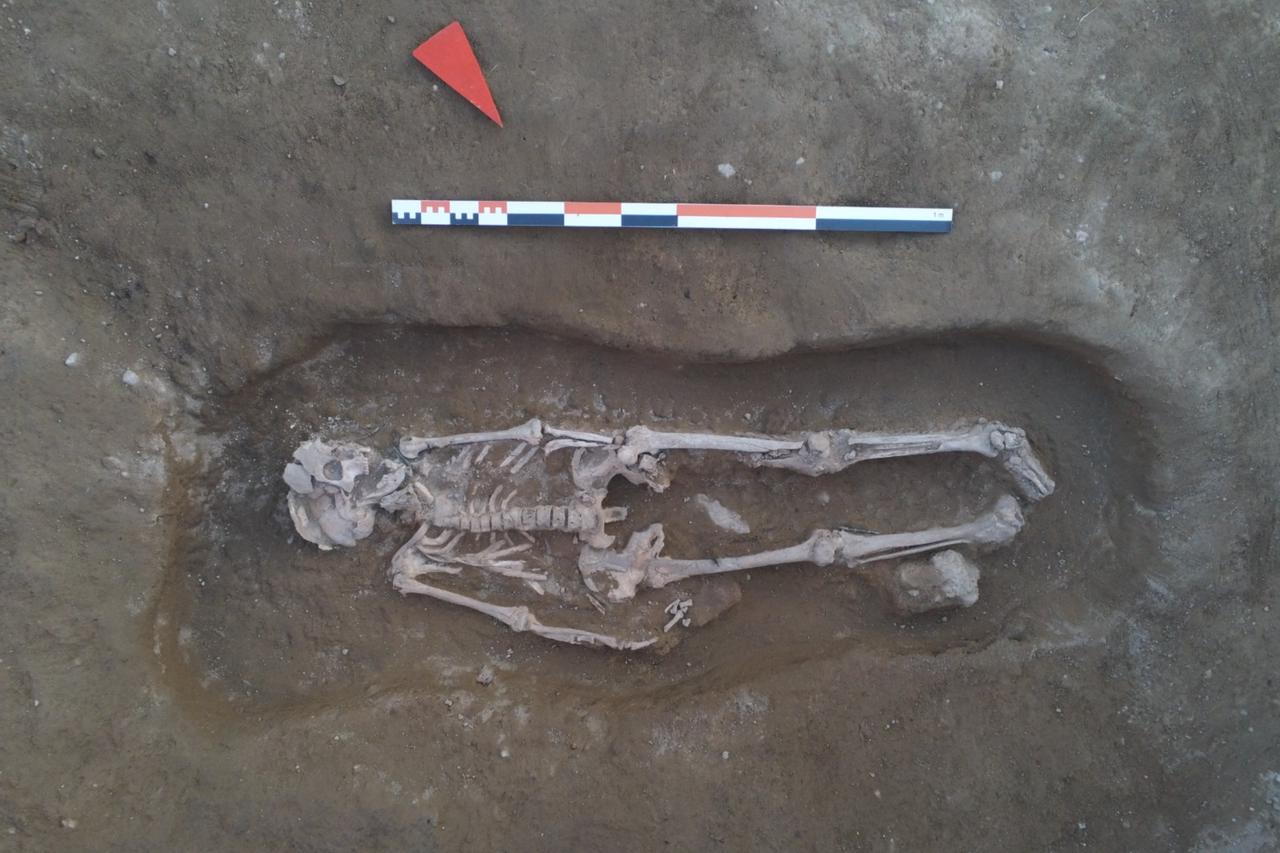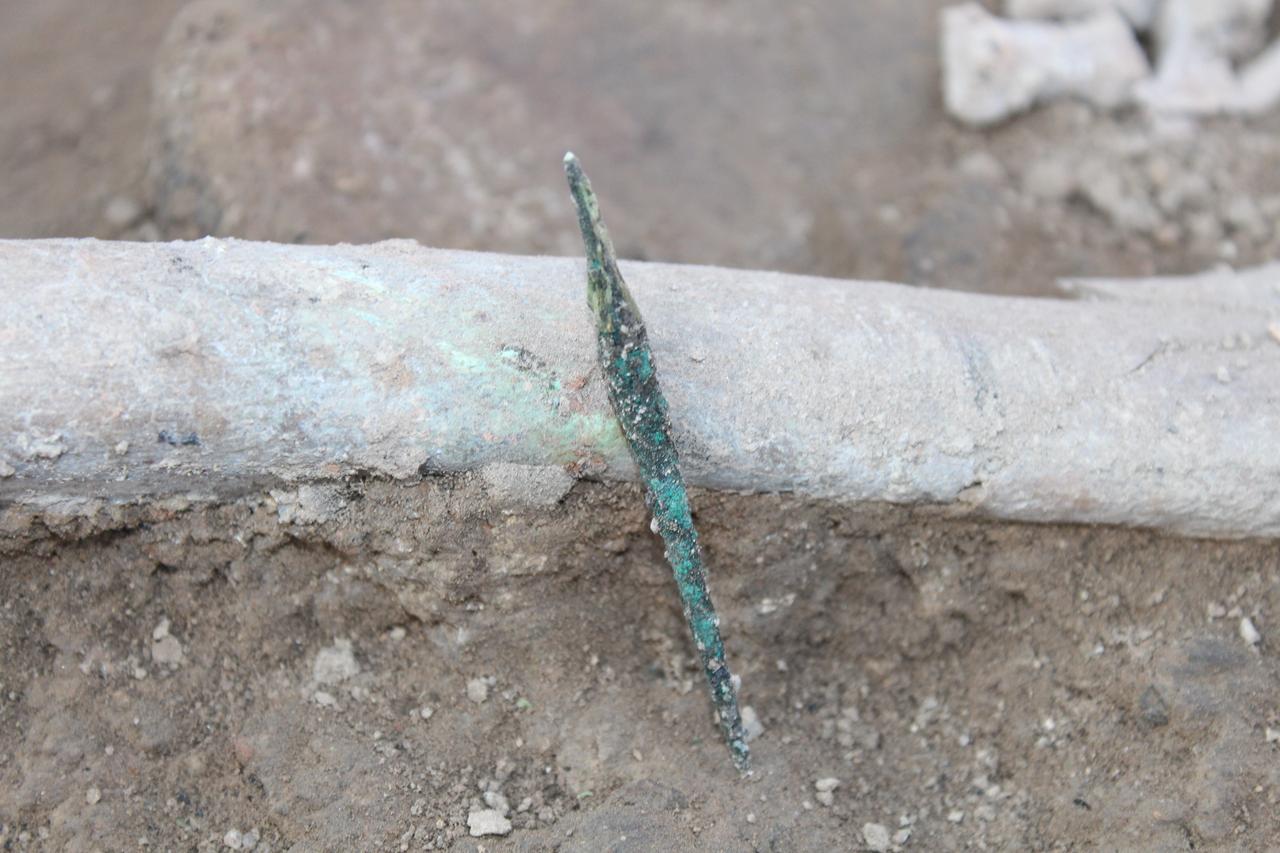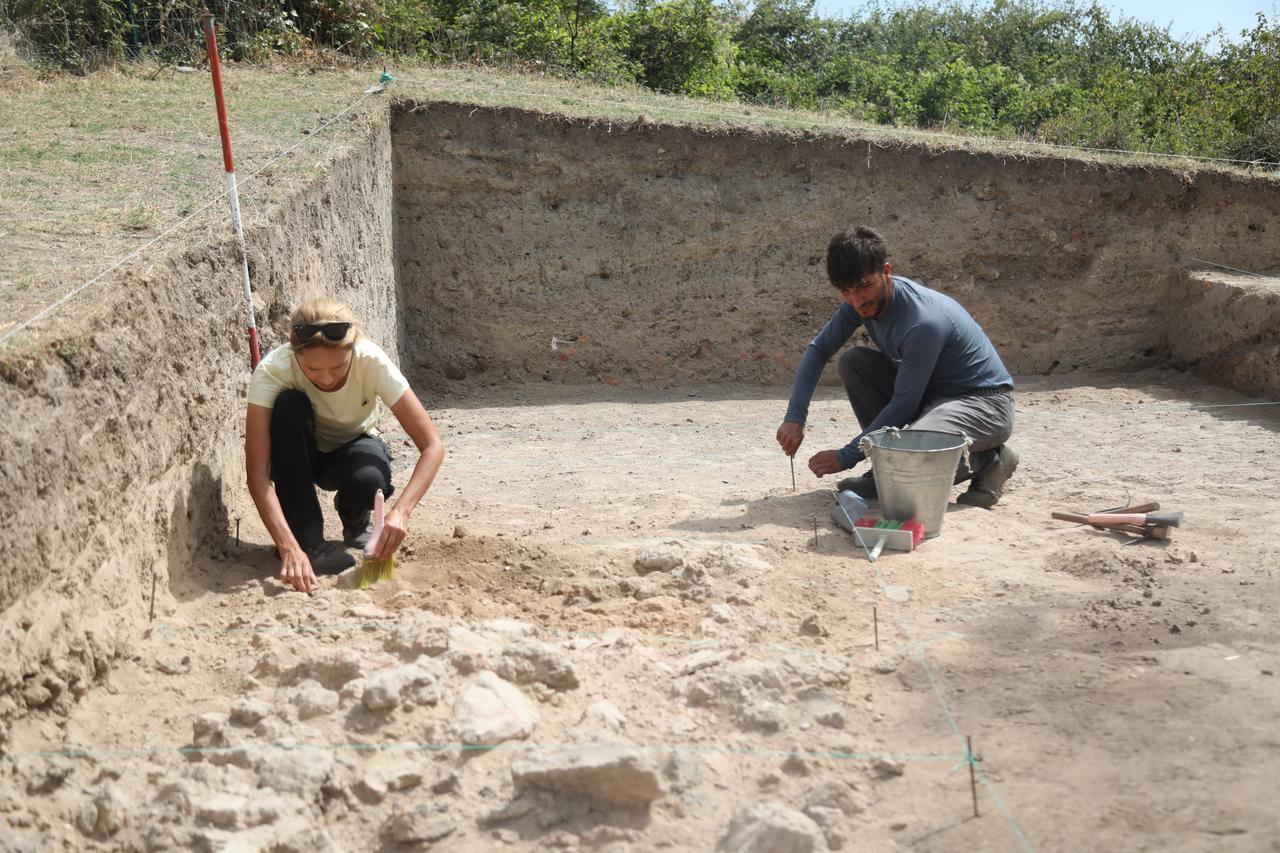
Archaeologists working at the Ikiztepe Hoyuk (Mound) site in Türkiye’s northern Samsun province have uncovered two graves containing personal belongings, offering fresh insights into the burial practices of early Anatolian communities.
Located in the Bafra district, Ikiztepe Hoyuk has been under excavation for more than five decades. Archaeologists have so far unearthed over 15,000 artifacts, revealing uninterrupted settlement between roughly 4500 and 2000 BC.
These findings demonstrate that the site was not only a residential center but also a place where different aspects of social and cultural life, including burial traditions, were actively practiced.

This season’s excavations began in July under the Ministry of Culture and Tourism’s “Heritage for the Future Project.”
The team, led by Associate Professor Aslihan Beyazit from Istanbul University’s Faculty of Letters, carried out work in both the northern and, for the first time, the southern areas of the mound.
The southern expansion was initiated to determine whether the large cemetery known in the north also extended southward.
According to Beyazit, the southern excavations immediately revealed burials just beneath the surface. She explained that three graves were uncovered, two of which contained personal belongings.
One belonged to what is believed to have been a male hunter buried with harpoon points, while the other belonged to a child around six years old, laid to rest with bracelets and other personal items.
“These graves show no deviation from the broader burial traditions seen in the north,” Beyazit noted.
“But the fact that Early Bronze Age burials were found directly under the topsoil suggests that the southern and northern settlement layers developed somewhat differently.”

Beyond burial traditions, the excavations frequently bring to light objects linked to weaving and textile production. Beyazit emphasized that Ikiztepe has been excavated for half a century, making it one of Türkiye’s longest-running archaeological projects.
The wealth of data from the site now allows researchers to explore broader questions about social and economic life.
She explained that analyses aim to determine how ancient communities lived, what roles men, women, and children played in production, and how their diet can be reconstructed through zooarchaeological studies of animal remains.
Botanical and geological research is also expected to shed further light on subsistence strategies and environmental conditions.
The discoveries at Ikiztepe are not only expanding knowledge of burial practices but also helping to map out patterns of production, diet, and community life in ancient Anatolia.
As Beyazit highlighted, ongoing interdisciplinary work will continue to place Ikiztepe at the center of archaeological research in northern Türkiye.